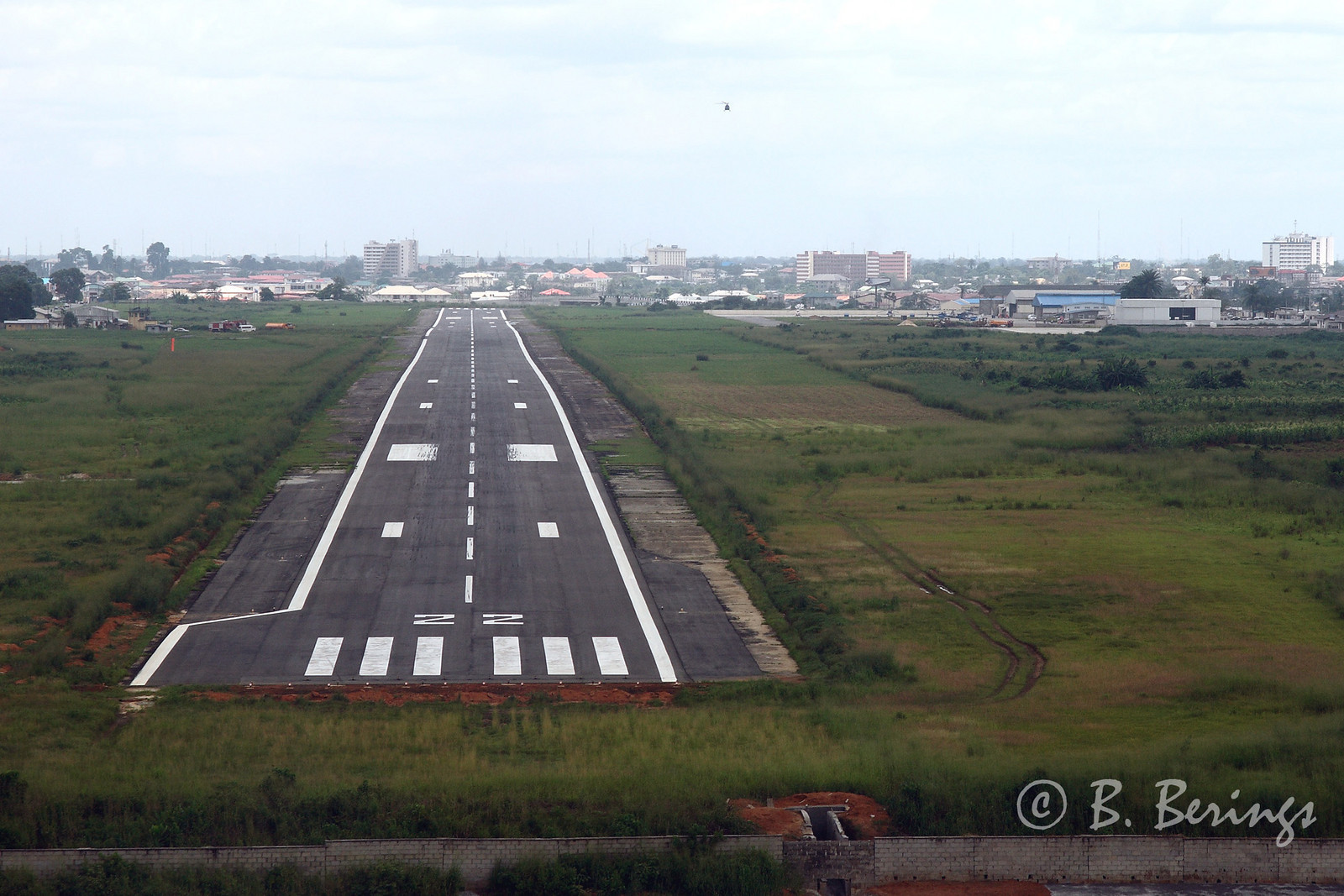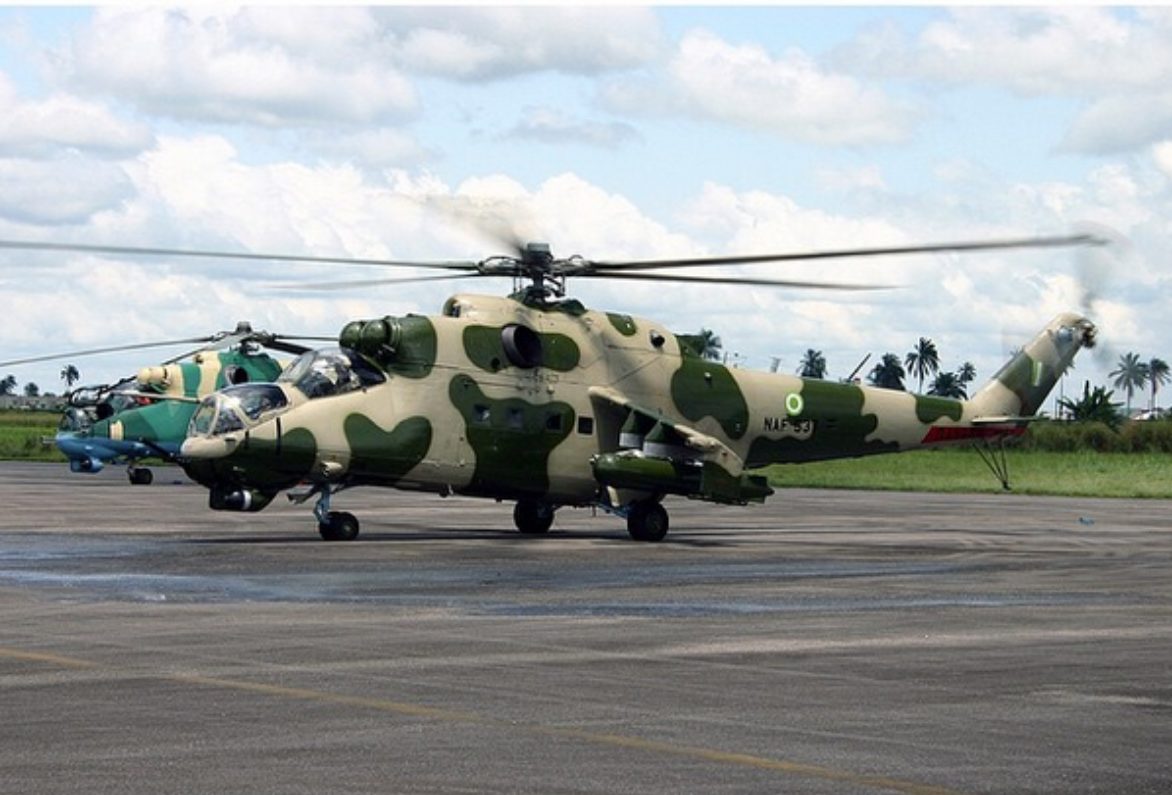Forgotten Facts: The Day Nigeria and Cameroon Nearly Went to War.
Between 2005-2006, border skirmishes between Nigerian and Cameroon troops nearly spiraled into full blown war, yet the Nigerian populace knew nothing about it.
Two years into his presidency, former Nigerian President Olusegun Obasanjo granted an Exclusive interview with the BBC where he was asked to respond French accusations of Nigeria using her economic and military muscle as a tool to pursue Nigeria’s hegemony in the region, accusing Nigeria troops of stiring up bother tensions.
The President gave a repudiating remark, stressing in absolute terms that Nigeria’s role as the bastion of peace and security in the region goes against French interests in subjugating her former colonies. Asked to clarify what he meant, the President cited as an example, the colonial tax imposed on Francophone countries. He accused the French of economic coloniaism by insisting the cash reverses of Francophone countries be kept in French banks.
Needless to say, to Paris this was a shot across the bow, and as such the French clever bit of subterfuge to demonize Nigeria in the French speaking world went into overdrive. Border skirmishes between Nigeria reached breaking point, but thankfully cooler heads prevailed and tensions de’escalated.
But what if war had indeed broken out between two if the most powerful countries in English and French speaking West Africa? A war of ideologues, one stressing on economic independence and regional integration, the other stressing on closer economic and military ties to its colonial master. An Anglo/ECOWAS alliance on one side and a Franco Cameroonian and Chadian alliance on the other side.
In accordance with the ECOWAS SECURTY CHARTER , an attack on any of its member state is an attack on all, but with most of the 16 member country’s lacking in resources and military power, would ECOWAS countries have even agreed to come to the aid of its most powerful member state as the ECOWAS SECURITY CHARTER stipulates? or would a surprise premptive attack by Cameroon and Chadian troops backed by French air power overwhelm the Nigerian army.
In this three part series we shall examine the implications of a potential war between Nigeria and Cameroon.
ROAD TO CONFLICT.
Africa they say is the most resource rich continent in the world. The sheer magnitude of the energy and natural resources Africa is endowed with is truly staggering. The sheer number and magnitude of Africans living in poverty is equally staggering. As the worlds resources dwindles the terminology “scramble for Africa” is becoming more a reality. As various powers hustle to secure their interests in Africa, conflicts by and large becomes inevitable.
Nevertheless, despite being neighbours, poor communication between Yaounde and Abuja inflated minor issues. Nigeria viewed its conflicts with Cameroon as a proxy war between France and the regional hegemon Nigeria. While Nigeria’s military power relative to Cameroon was a mismatVic but Abuja was under no illusion, if war breaks out, Cameroon can count on having full military and diplomatic support from France’s.
In 2005 Militants from the Niger Delta returning from a bothched raid on an Exon Mobile oil terminal open fire when they encountered Cameroon soldiers, killing 20 Cameroonian soldiers.
At the early stages of the Niger Delta crises it was not uncommon to gave militants adorn military fatigues. Mistaken the militants who wore army uniforms as Nigerian soldiers, Cameroons reprisal came swiftly. Nigeria troops stationed in the disputed Bakassi Peninsula came under surprise fire from Cameroons Elite BIR (Cameroonian special forces).
The attack, just 20 miles from Calabar killed 6 Nigerian soldiers and injured dozens more. Nigeria believed the attack was premeditated, with Cameroon brining in its BIR (Cameroonian Special Forces) to ambush Nigerian soldiers, as the BIR is never deployed to the Bakassi area. Alleged abuse against Nigerian civilians living in the islands further infuriated Abuja.
Though not the case, Abuja still believed the attack was premeditated. The assertion that Nigerian troops instigated the attacks was interpreted as Cameroon sticking the middle finger to Nigeria. Furioue, the Cameroonian Ambassador was summoned to the State Villa in Abuja with a clear message to Yaounde : Proffer a public apology with 78 hours.
Of course that wasn’t going to happen.
In March, Nigerian soldiers launched a well planned blistering counterattack, designed to rattle the Yaounde. A Nigerian army patrol unit violated Cameroonian territory by infiltrating the peninsula as far as the Rio del Ray and opened fire on a Cameroonian army outpost, killing dozens of Cameroonian soldiers. Cameroonian troops returned fire, killing five Nigerian soldiers.
Sporadic skirmishes intensified after Cameroonian artillery units without warning shelled Nigerian army outposts in the Bakassi Peninsula, killing seven Nigerian soldiers and scores of civilians.
This time the Nigerian army responded with overwelming force by air, land and sea. Six BM-21 Grad rocket artillery pieces rained down 122mm shells on a Cameroonian patrol outpost, at the same time two Mi-24 attack helicopter penetrated 24 kilometres into Cameroonian airspace and opened fire on a Camerooian army outpost where Cameroonian gendarmes were watching a football game, killing 20.
Expecting reprisal atracks 600 soldiers from the Army 6th Infantry Division was deployed to Calabar.The Nigerian Navy also dispatched 24 armed speedboats to the peninsula to police the creeks.
Nigeria’s actions was clear to Cameroon, we will respond if provoked.The scale of the escalation rattled Yaounde.The Cameroonian government seemed to have no semblance of a response. It was this incident the Cameroonian government reached out to France, its colonial master with whom it has a Defence Treaty.
Thankfully cooler heads prevailed, as tension and hostilities eased ……until
2007
On January 2007, the Nigerian Air Force was placed on maximum alert after the discovery by the Nigeria Intelligence Agency (NIA) that France was building a military base in a town near the Bakassi Peninsula. It should be noted that despite a 1996 ICJ ruling o refrain from military activities until a final court decision is reached Cameroon and Nigeria seemed hell bent on re-igniting the issue while France fuels the fire.
The Nigerian Air Force based on the eastern flank of the Tactical Air Command in Yola and Maiduguri was placed on maximum alert. The Nigerian Army 3rd Amoured Division was also placed on alert. The National Security Council headed by Nigerian President, ordered the Nigerian Air Force base in Port Hacourt and its compliment of two attack helicopter squadron to be combat ready by the end of the month.


The discovery that France was secretly building an air base in a town in Cameroon located near the disputed Bakassi Peninsula border with Calabar stunned Nigeria’s military planners.
According to the Intelligence report the French base was nearly completed and had facilities for deploying military aircrafts. FRENCH military aircrafts. There was little doubts concerning whose planes will taking off from those airfields, the France will not build a multi million dollar air base for Cameroons compliment of 6 Alpha jets.
The swift action and coordination by Nigeria’s military planners afterwards did not go unnoticed by the Franco-Cameroon military alliance. The message was clear - If Cameroonian, and by extension France is eager to solve the Bakassi dispute militarily, Nigeria will likely oblige….
To be continued in the next series.
This article first appeared on defensenigeria.blog
written by Perestroika

Comments
Post a Comment
Please share your views with us... We love to hear from you!